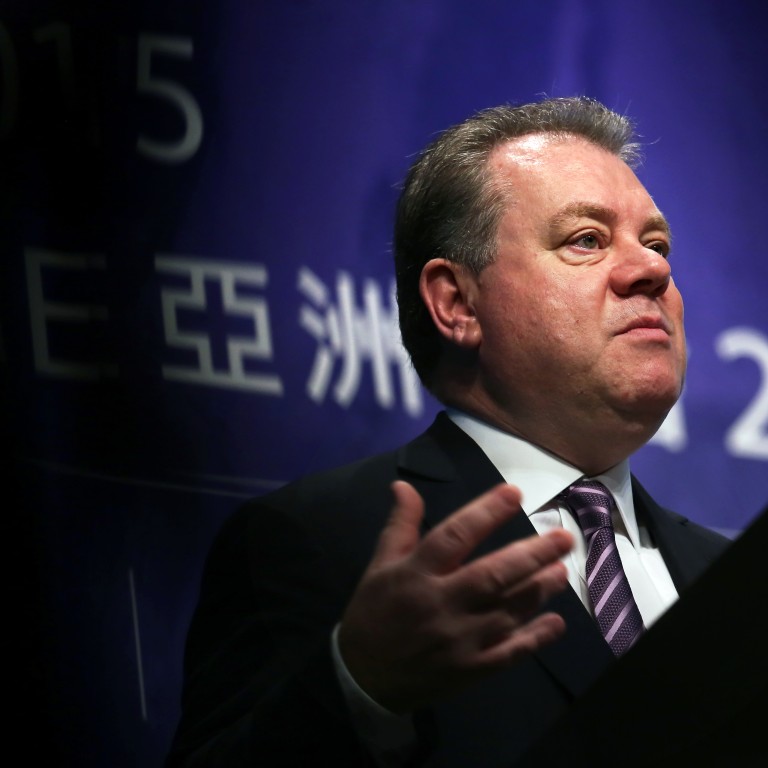
New | LME working on linking with commodity exchanges in China, but process not simple
“Commodities work differently. Each type of contract has their own contract size and trading rules. Investors can also choose to settle in cash or physical delivery. As such, a tie up between commodity markets would be in more different formats” - LME chief executive Garry Jones
The London Metal Exchange (LME) is in detailed talks with mainland authorities to create direct trading links with domestic commodity exchanges that would emulate the Shanghai-Hong Kong Stock Connect.
“We have not yet come to the stage for any concrete details, but we are in a very good place in exploring what type of connection can be done,” LME chief executive Garry Jones told the South China Morning Post in an interview on the sidelines of the annual LME Week Asia in Hong Kong.
Jones said the complex nature of commodities trading relative to equities meant multiple options were on the table in discussions that could link commodity markets in Dalian and Shanghai to Hong Kong.
“Commodities work differently. Each type of contract has their own contract size and trading rules. Investors can also choose to settle in cash or physical delivery. As such, a tie up between commodity markets would be in more different formats,” he said.
Besides creating a mechanism for mutual market access for cross-border trading, common licensing and listing rules would also have to be established and the various exchanges would have to agree a framework of clearing and warehousing rules to unify settlement and delivery processes.
Charles Li Xiaojia, the chief executive of Hong Kong Exchanges and Clearing which owns the LME, said on Wednesday they would work with mainland exchange and warehouse operators for a potential link within three to five years to allow physical delivery for commodity or LME products.
It took only seven months to kick off the Stock Connect scheme in November, though officials had done much preparatory work on how it was likely to work after the project was first mooted some years previously.
Besides the alignment of trading rules, the LME could also share its technology and software with mainland commodities exchanges and warehouse operators, Jones said.
The new LME clearing house, which was launched in September, will also consider linking with HKEx and mainland exchanges to provide cross border clearing services.
Jones said Beijing has showed it was open to the idea of more mainland firms trading commodities overseas, which would benefit both HKEx and LME. “This would boost (the number of) mainland investors trading commodities in Hong Kong and London,” he said.
Beijing has announced that 100 more state-owned enterprises will be allowed to trade commodity derivatives overseas without regulatory approval, although analysts said the lack of expertise could limit the number of companies trading complex derivative products at this time.
The LME has plans to launch gold, silver and platinum contracts next year, Jones said.
Trading activity of three metal contracts launched in December 2014 has been tepid so far. The copper, aluminium and zinc products have averaged daily turnover of just 287 contracts in the first four months this year. Nearly 41 million copper contracts were traded on the LME in London last year alone.
Jones said he was not fretting about the low turnover.
“I am not worried about the Hong Kong contracts. There are few futures contracts that could take off only four months after launch,” he said. “What is more important is to tie up with China commodity markets and investors. The Shanghai and Hong Kong stock market connect has shown HKEx would be a good partner for the mainland exchanges to expand internationally.”

